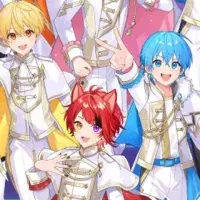
Exploring Yi Cultural Heritage Through Poetry: Jidi Majia's Vision
Jidi Majia: Bridging Cultures Through Poetry
In the realm of poetry, Jidi Majia stands out not merely as a voice of the Yi people but as a prominent figure seeking to unite various cultures through the beauty of verse. Recently, during the Daliang Mountain Poetry Festival in Xichang, Sichuan Province, Majia articulated how poetry transcends mere aesthetics. For him, it’s a vital tool that reflects life’s complexities and fosters a deeper emotional connection among diverse populations.
Majia, a celebrated poet whose works have reached an international audience, advocates for poetry as a medium that serves both as a witness to the world's splendor and its challenges. This festival drew an eclectic mix of poets, writers, and artists from across the globe, including Germany, the US, Italy, Poland, and Spain, all engaging in the shared endeavor of poetic creation.
During an interview, Majia reminisced about how his early exposure to the rich poetic traditions of his ethnic heritage inspired him. He stated, "One of the most important reasons I became a poet is that, from a very young age, I was deeply immersed in the rich poetic traditions of my own people, the Yi ethnic group." This connection to his roots has been pivotal in shaping his unique perspective on life and art.
The Yi people, characterized by a profound history and a penchant for poetry, have long utilized poetic forms to convey aspects of their philosophy, history, and the natural world. As Majia noted, even today, poetry serves as an educational medium for imparting moral values and guiding social conduct among children.
Majia's career, which took off when he won the prestigious Third New Poetry Collection Award at just 26 years old for his collection, Songs of First Love, reflects a continuous pursuit of cultural and personal identity. His poetry celebrates life, nature, and the essence of humanity, skillfully weaving myth and tradition into modern concerns about identity and existence.
Over the last decade, however, Majia's works have evolved, with poignant, long-form poetry such as The Split Planet and The Promised Land reflecting broader human experiences and anxieties of contemporary society. His journey through poetry has not only been personal but deeply social, as seen during his impactful visit to the Medellín International Poetry Festival in Colombia in 1997. In a nation marked by unrest, poetry became a powerful unifier, allowing people to set aside conflicts and commune in shared experiences.
Addressing modern challenges such as geopolitical strife, bioengineering, and the influence of artificial intelligence, Majia believes poetry can act as a guiding force. He asserts that poets are called to contemplate the pressing questions of humanity, to distinguish between right and wrong, and to expose the truths of human nature through their art.
Believing in the transformative power of dialogue, Majia has taken initiatives to host international poetry events in China, such as the Qinghai Lake International Poetry Festival. He explains, "Telling China's story well begins with bringing Chinese culture to the world while also inviting foreign poets to experience profound insights into our country." His endeavors serve as a testament to the belief that mutual understanding through shared stories and experiences can forge deeper connections among diverse cultures.
With over forty countries participating in past poetry festivals, Majia is optimistic about the future of such cultural exchanges. He envisions them as bridges that not only share the complexities of Chinese culture but also contribute to a more interconnected global community. As he prepares for the upcoming Qinghai Lake International Poetry Festival this July, he expresses his conviction, "I believe our connection will grow deeper, and the world will come to see a more authentic China."
In this ever-evolving tapestry of cultural narratives, Jidi Majia's work stands as a beacon of hope, eloquently advocating for the role of poetry in navigating an increasingly complex world. It’s clear that through the power of verse, the poet not only connects distances but also builds a bridge between hearts across the globe.
Topics Entertainment & Media)










【About Using Articles】
You can freely use the title and article content by linking to the page where the article is posted.
※ Images cannot be used.
【About Links】
Links are free to use.